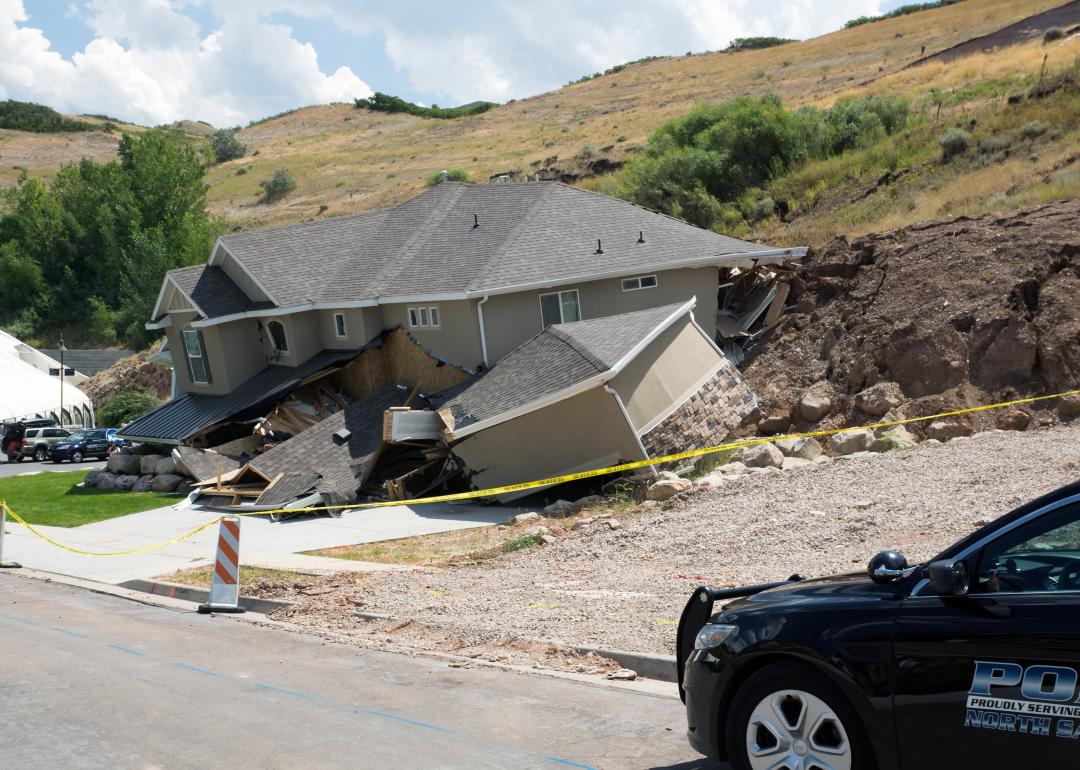
Counties in North Dakota where landslides pose the greatest threat
This story originally appeared on Truck Parking Club and was produced and distributed in partnership with Stacker Studio.
Counties in North Dakota where landslides pose the greatest threat
Hurricane Helene wrought devastation across the Southeast. The storm's high winds and flooding killed more than 230 people, and the damage to property, infrastructure, and other economic impacts is estimated to be worth tens of billions of dollars.
But heavy rains and destructive winds weren't the only natural disasters out in force: The hurricane also activated nearly 2,000 landslides, of which over half have impacted roads, rivers, and structures, according to early estimates.
Even on their own, landslides are a deadly and costly natural disaster. There were 310 fatal landslides globally in the first half of 2024 alone, which killed 2,315 people—unusually high numbers compared to previous years. In the U.S., 25 to 50 people on average are killed by landslides each year, according to the Department of Interior.
Landslides from Hurricane Helene alone killed 20 people in North Carolina, which endured the worst of the storm's landslides. A combination of fast-moving mud and water destroyed roads, rail links, water access, homes, and businesses across the state.
As climate change strengthens hurricanes and increases the frequency and severity of extreme weather events, the risk of landslides is also rising. To get a clearer picture of where the risk is greatest, Truck Parking Club mapped county-level data from the Department of the Interior Geological Survey, then ranked North Dakota counties by the share of their land that is susceptible to landslides as part of a larger national analysis. Data was published in September 2024. Counties are displayed by the share of their land area that is susceptible to landslides.
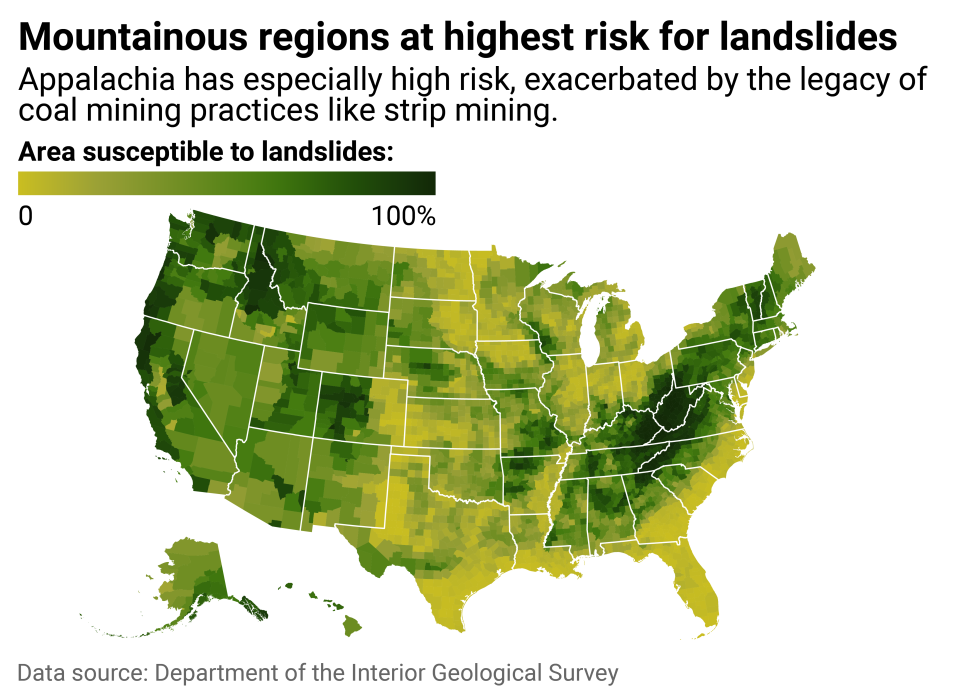
Counties within mountain ranges have high landslide susceptibility
In North Dakota, over half of the land is susceptible to landslides in 2 counties.
A landslide occurs when rock, debris, or earth moves down a slope. Inclines like hills and bluffs are a critical element of slides, meaning mountainous regions are at higher risk. Typically, landslides are triggered by forces like heavy rainfall, snowmelt, earthquakes, volcanic activity, human activities, or some combination of factors. Often, they're impossible to predict.
According to the Geological Survey, places where weak or fractured earth sit on steep slopes are likely to experience landslides—for example, areas with a history of strip mining. In Appalachia, about 1,400 square miles of land are scarred by strip mining within the Ohio River basin, according to an Inside Climate News analysis of satellite imagery. Together, the "waste rock" left behind, increasing stream flows, and heavy rainfalls brought on by climate change create a deadly recipe for landslides. This part of Appalachia is also near the Gulf of Mexico, where fast-warming waters stir up exceptionally fast-growing storms, as was the case with Hurricane Helene.
Combined, these elements create the highest vulnerability to landslides in the region. Much of West Virginia, in particular, is at risk: In 47 of the state's 55 counties, more than 90% of the land is susceptible to slides. Parts of Virginia, Kentucky, Ohio, Tennessee, and North Carolina are also exceedingly vulnerable.
Parts of California's coastline have also been plagued by major landslides. Earlier this year, a rockslide destroyed a part of Highway 1 along the state's famed Big Sur. The earth below the highway isn't sturdy, and wetter storms are further weakening it, contributing to more frequent and severe landslides. The majestic Big Sur stretch is an iconic road trip and tourism destination, where the highway winds along cliffs above the Pacific Ocean. However, it was forced to close to most traffic, and still offers just one lane at some points.
Other landslide risk factors include population growth, rapid land use changes, urbanization, heavy logging and deforestation, and inappropriate use of lands—slopes in particular. Wildfires also generate landslide hazards, leaving behind excess debris that can be dragged down during floods, as was the case in Big Sur.
The heightened frequency and severity of landslides are a direct consequence of logging, mining, and climate change, with massive repercussions for safety and critical infrastructure in the U.S. and around the world.
Hazard maps like those from the Geological Survey are a tool that federal, state, and local governments can use to identify landslide vulnerabilities and prepare for them. Preparation and mitigation efforts might include landslide drills, evacuation plans, improved drainage systems, and slope stabilization. Governments in susceptible areas can adopt disaster-resilient building codes and standards, as well as restrictions on mining and logging.
In some cases, such as Highway 1, there are no obvious solutions to fully protect against landslides. Still, with increased awareness and response plans, people can make more informed decisions on where to live (or safely visit) and can prepare themselves for landslides and their aftermath.
Read on to see where in North Dakota is most vulnerable to the growing landslide threat.
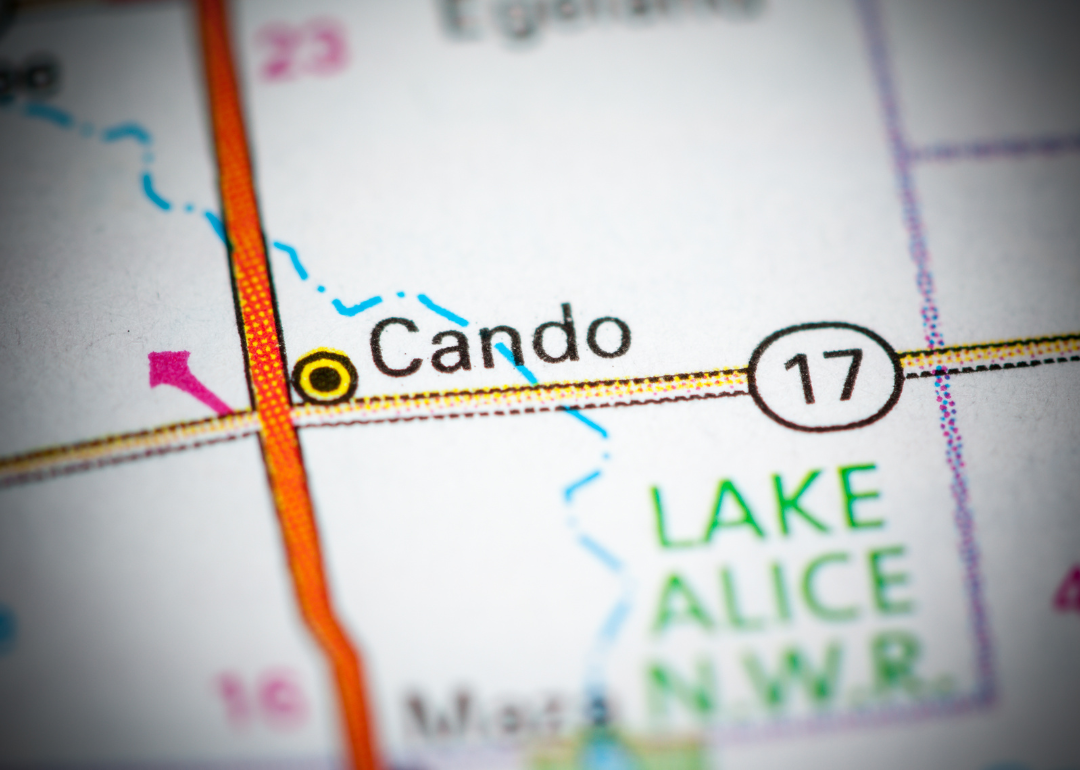
#53. Towner County
- Percent susceptible area: 1.5%
- Total susceptible area: 15 square miles

#52. Ramsey County
- Percent susceptible area: 2.0%
- Total susceptible area: 23 square miles

#51. Cass County
- Percent susceptible area: 3.7%
- Total susceptible area: 66 square miles
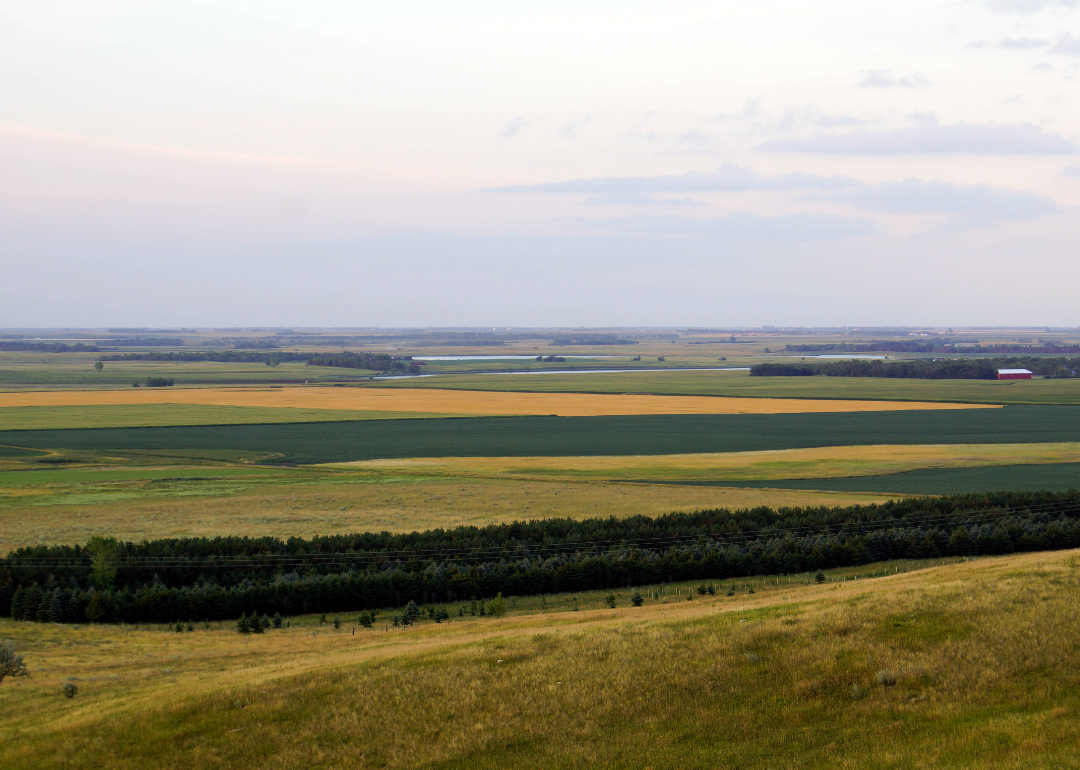
#50. Sargent County
- Percent susceptible area: 3.8%
- Total susceptible area: 32 square miles
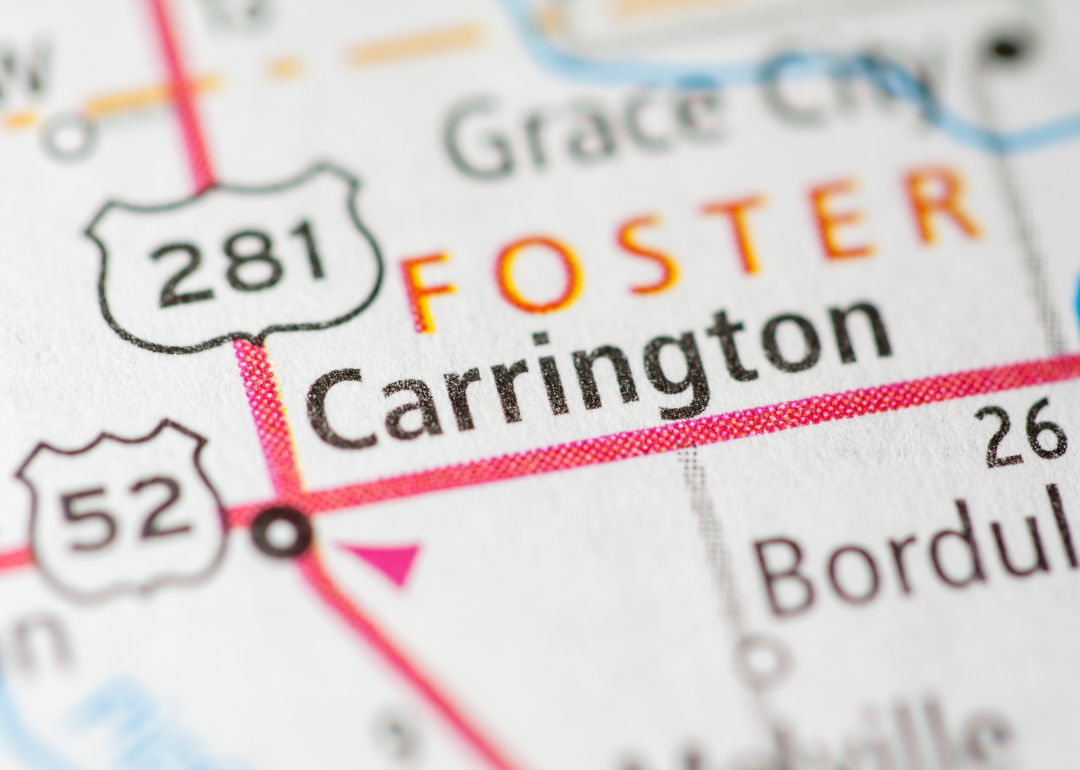
#49. Foster County
- Percent susceptible area: 4.1%
- Total susceptible area: 27 square miles

#48. Traill County
- Percent susceptible area: 4.1%
- Total susceptible area: 35 square miles

#47. Pembina County
- Percent susceptible area: 4.1%
- Total susceptible area: 45 square miles
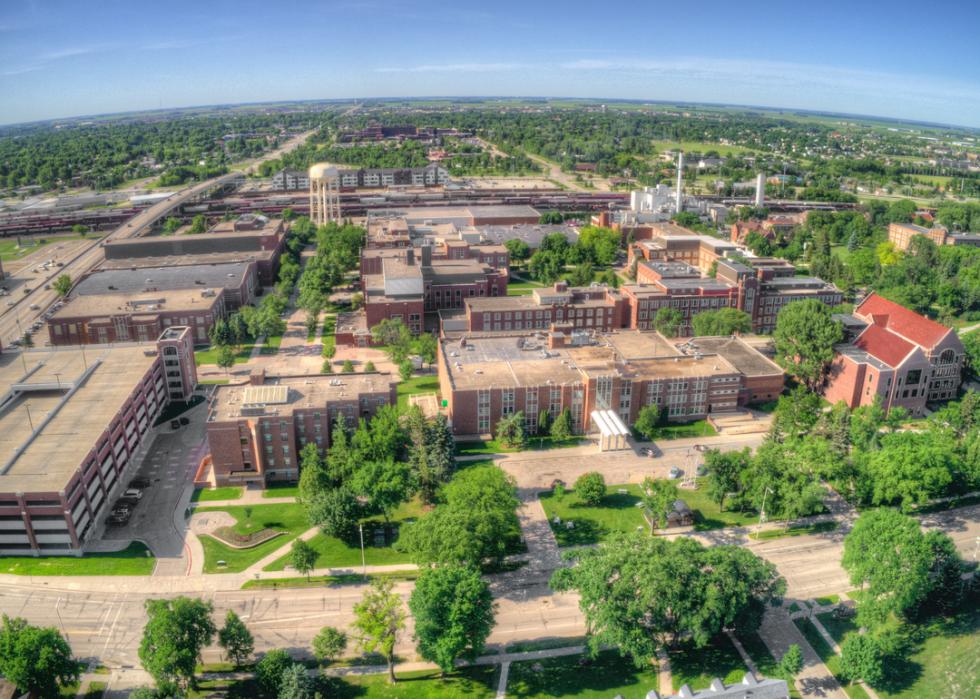
#46. Grand Forks County
- Percent susceptible area: 4.4%
- Total susceptible area: 63 square miles
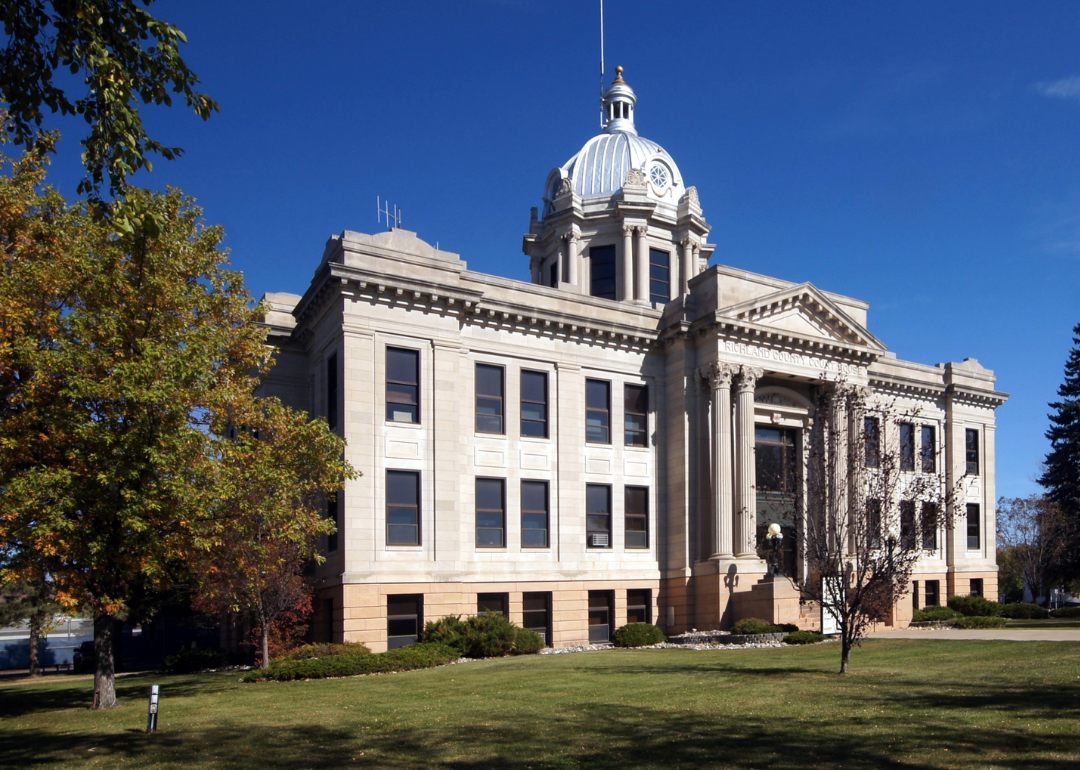
#45. Richland County
- Percent susceptible area: 5.0%
- Total susceptible area: 72 square miles
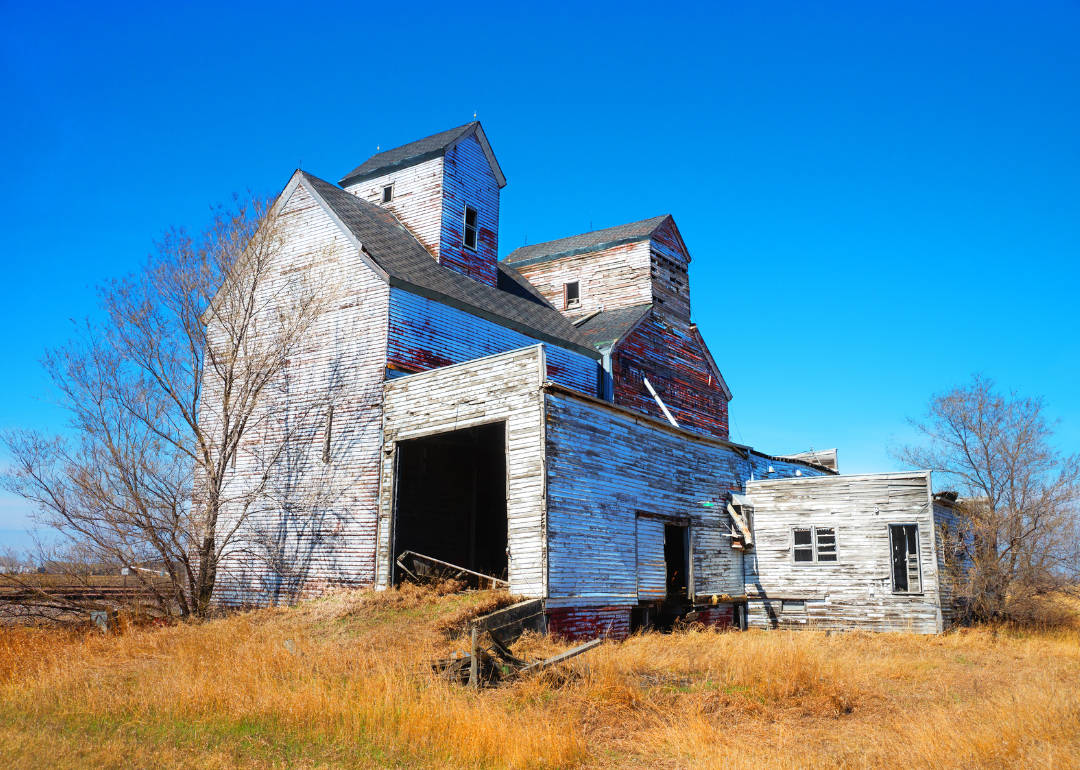
#44. Walsh County
- Percent susceptible area: 5.3%
- Total susceptible area: 68 square miles
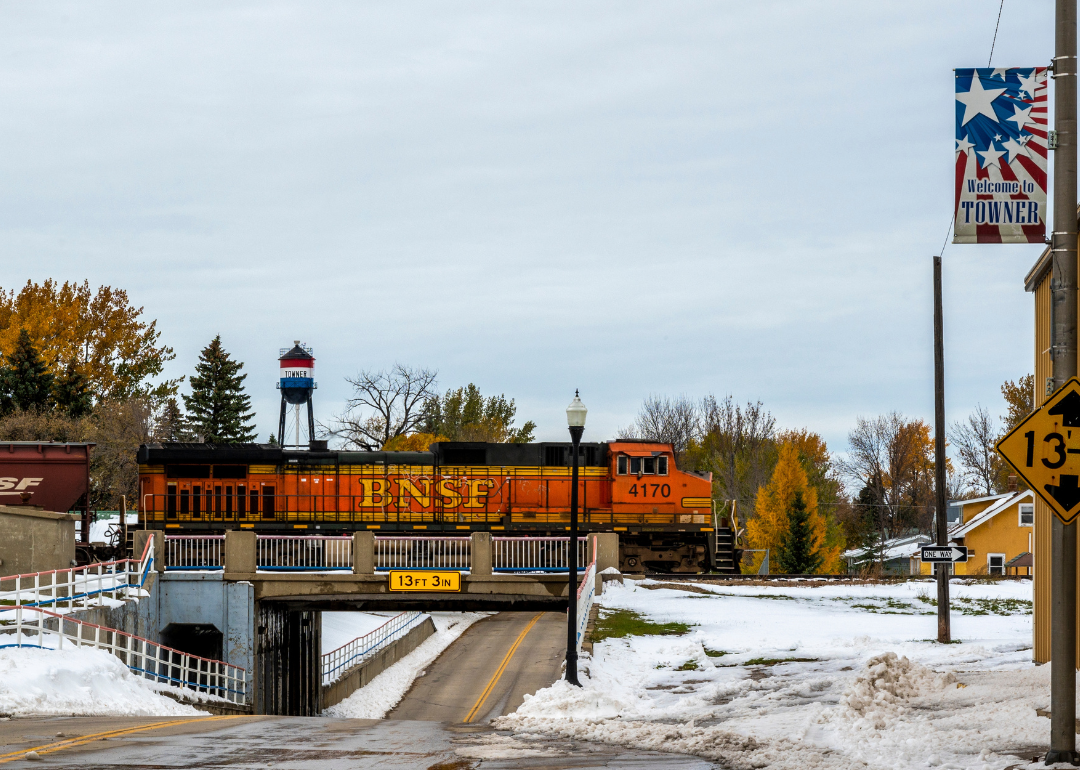
#43. McHenry County
- Percent susceptible area: 5.4%
- Total susceptible area: 101 square miles

#42. LaMoure County
- Percent susceptible area: 5.5%
- Total susceptible area: 63 square miles
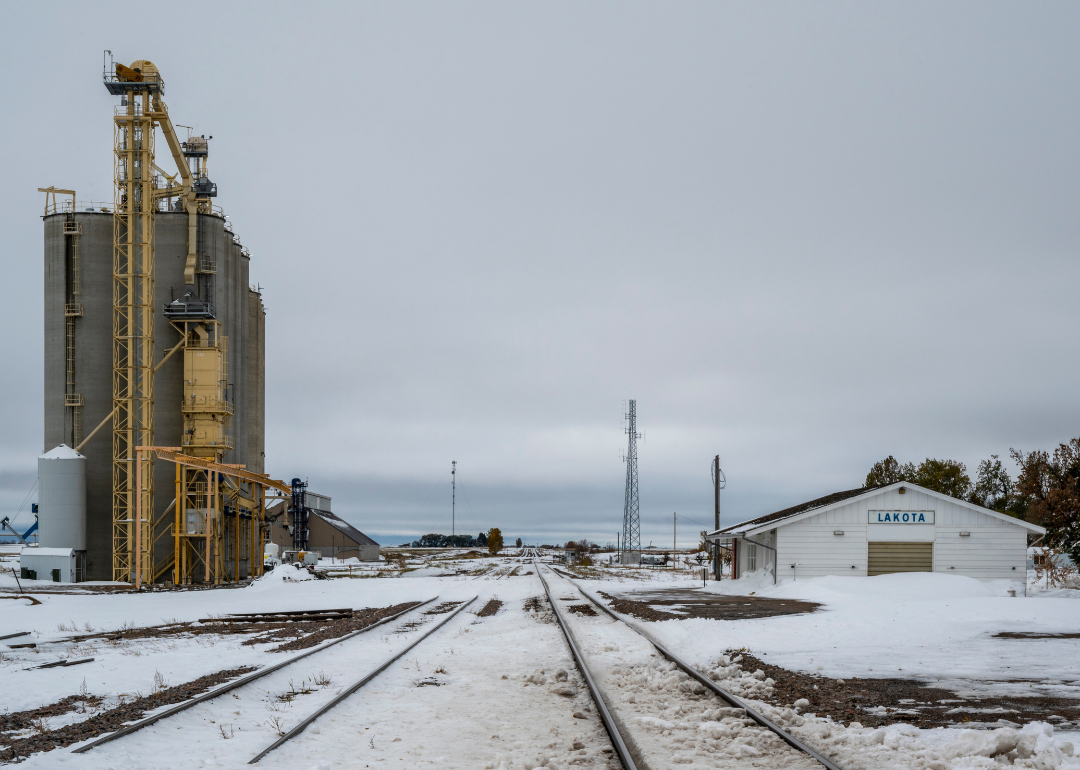
#41. Nelson County
- Percent susceptible area: 5.9%
- Total susceptible area: 59 square miles

#40. Renville County
- Percent susceptible area: 6.0%
- Total susceptible area: 53 square miles
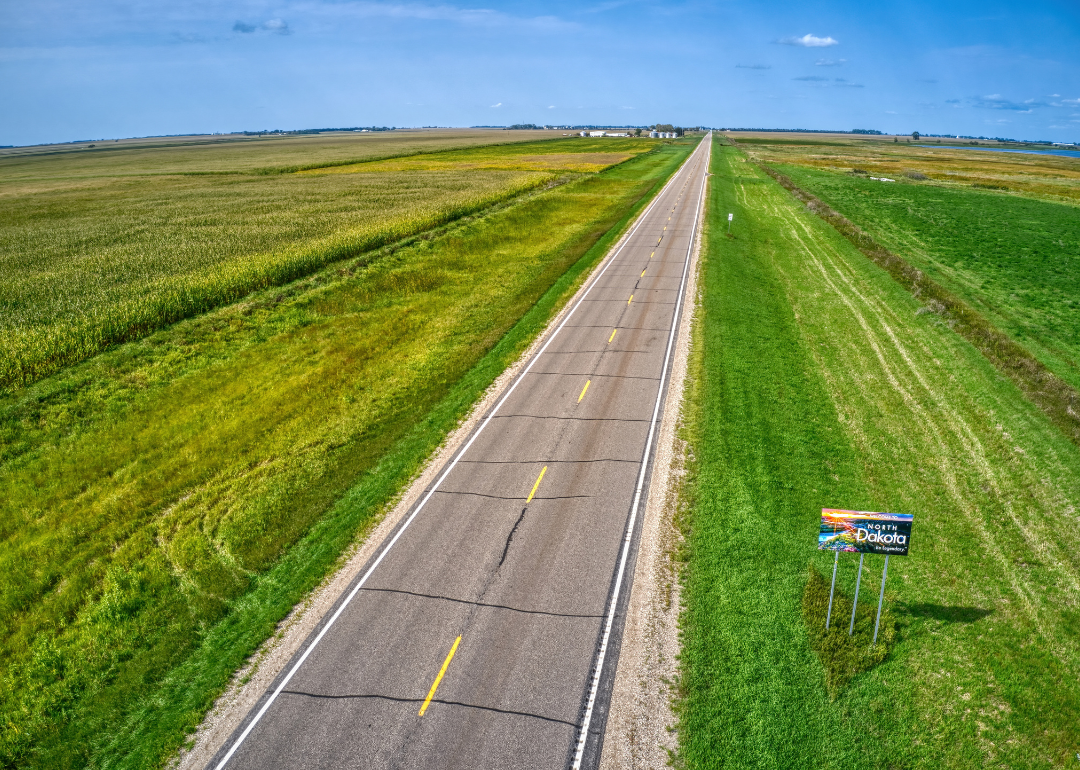
#39. Dickey County
- Percent susceptible area: 6.0%
- Total susceptible area: 68 square miles

#38. Wells County
- Percent susceptible area: 6.3%
- Total susceptible area: 81 square miles
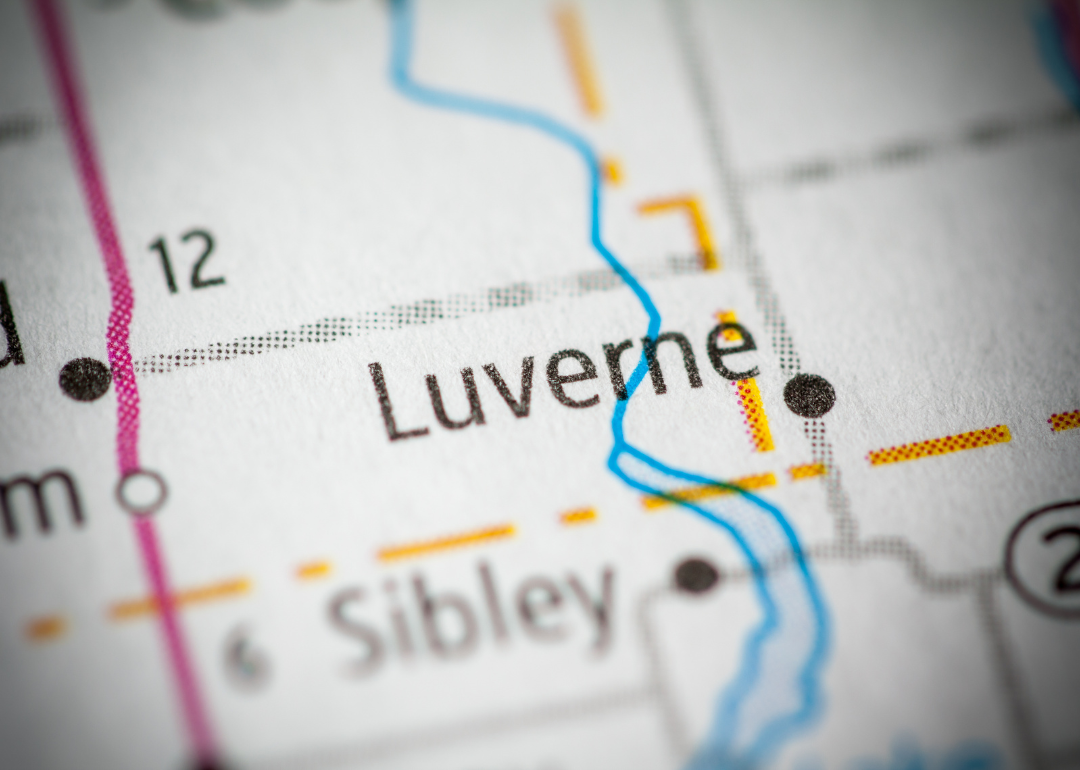
#37. Steele County
- Percent susceptible area: 6.7%
- Total susceptible area: 48 square miles

#36. Bottineau County
- Percent susceptible area: 6.7%
- Total susceptible area: 112 square miles
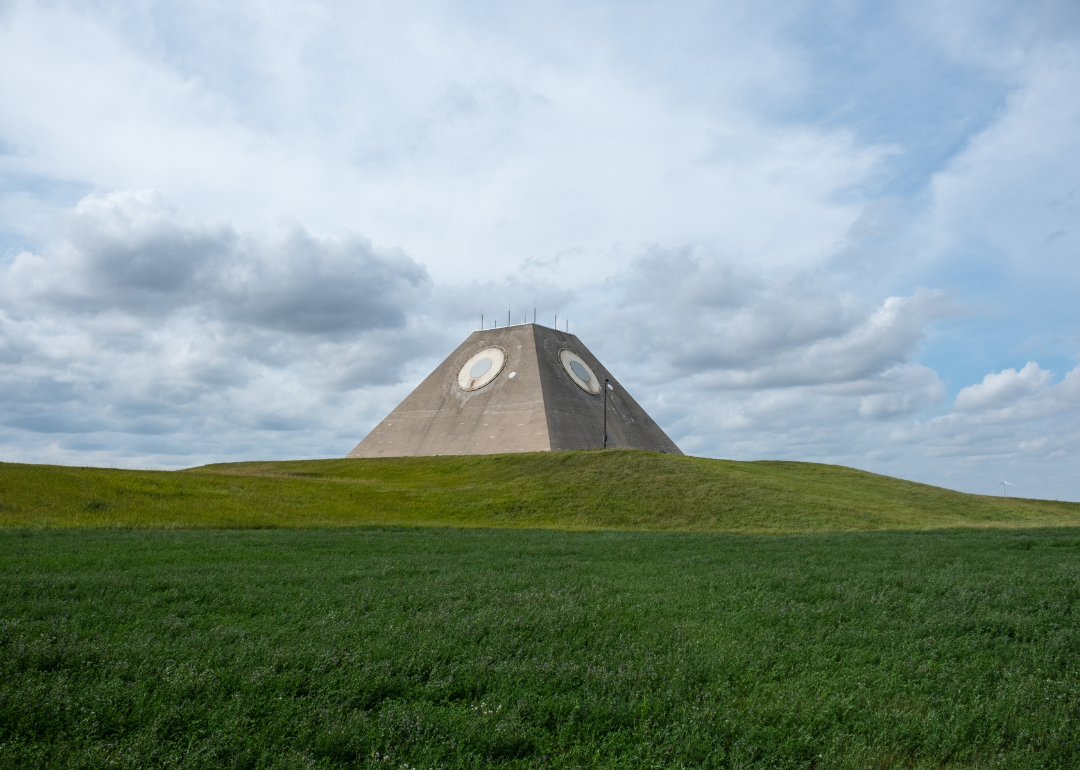
#35. Cavalier County
- Percent susceptible area: 7.0%
- Total susceptible area: 105 square miles
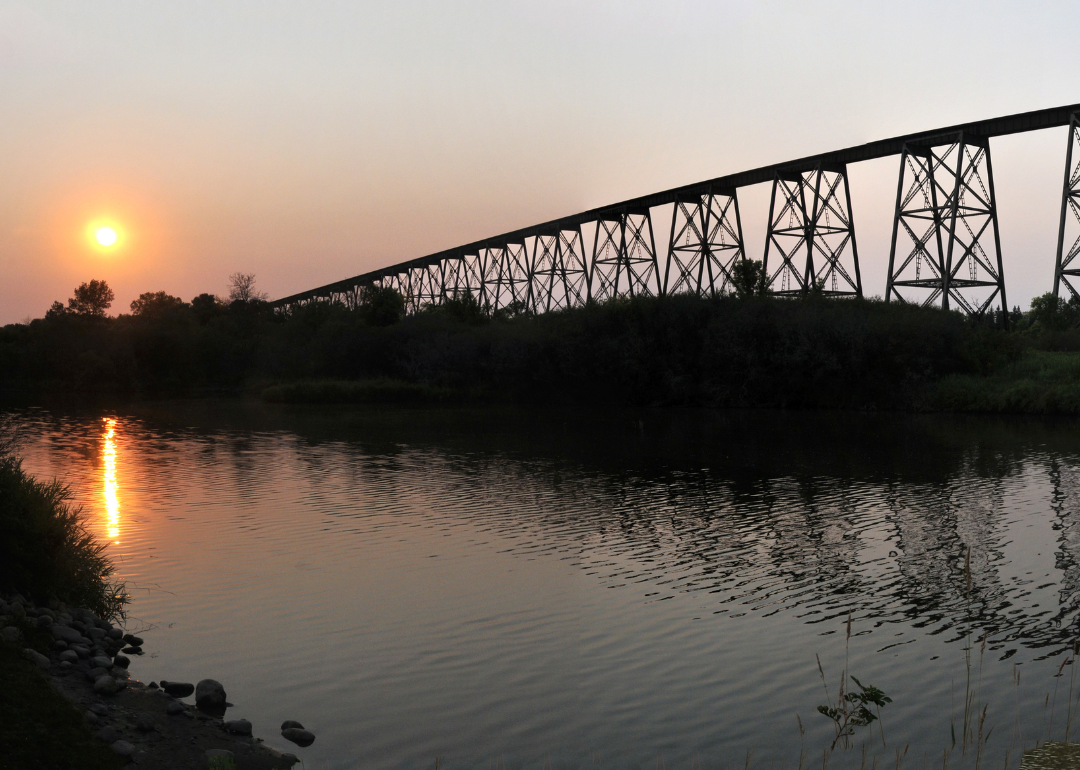
#34. Barnes County
- Percent susceptible area: 7.8%
- Total susceptible area: 117 square miles
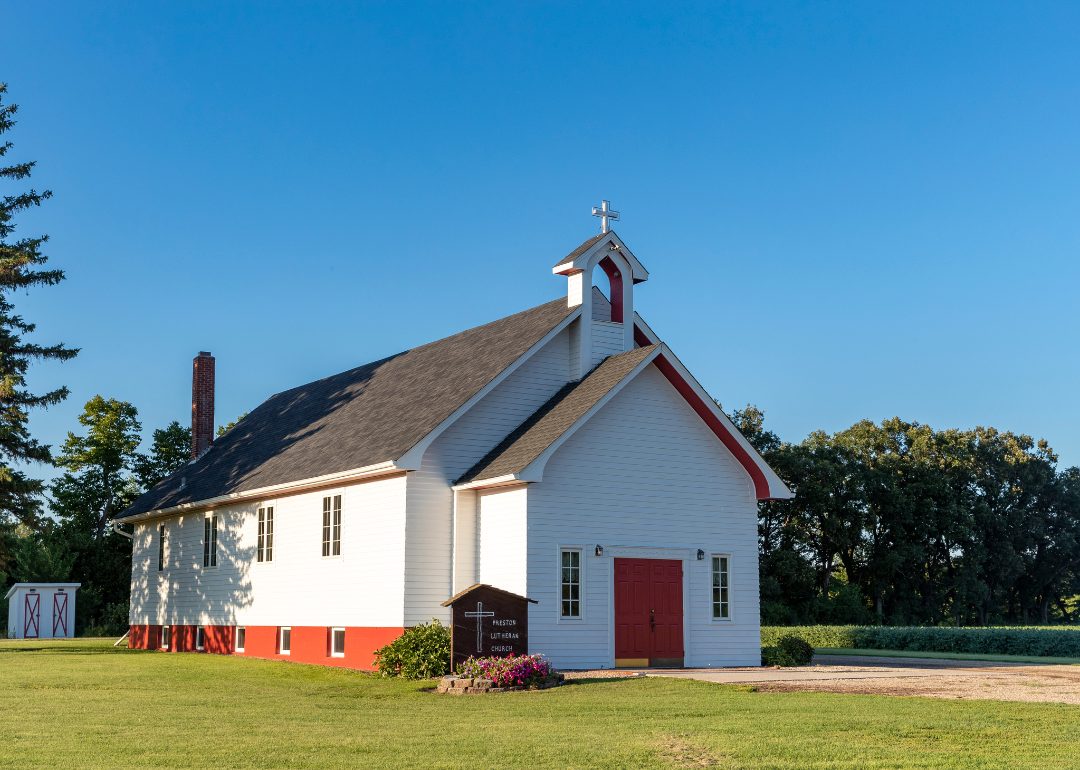
#33. Ransom County
- Percent susceptible area: 9.1%
- Total susceptible area: 79 square miles
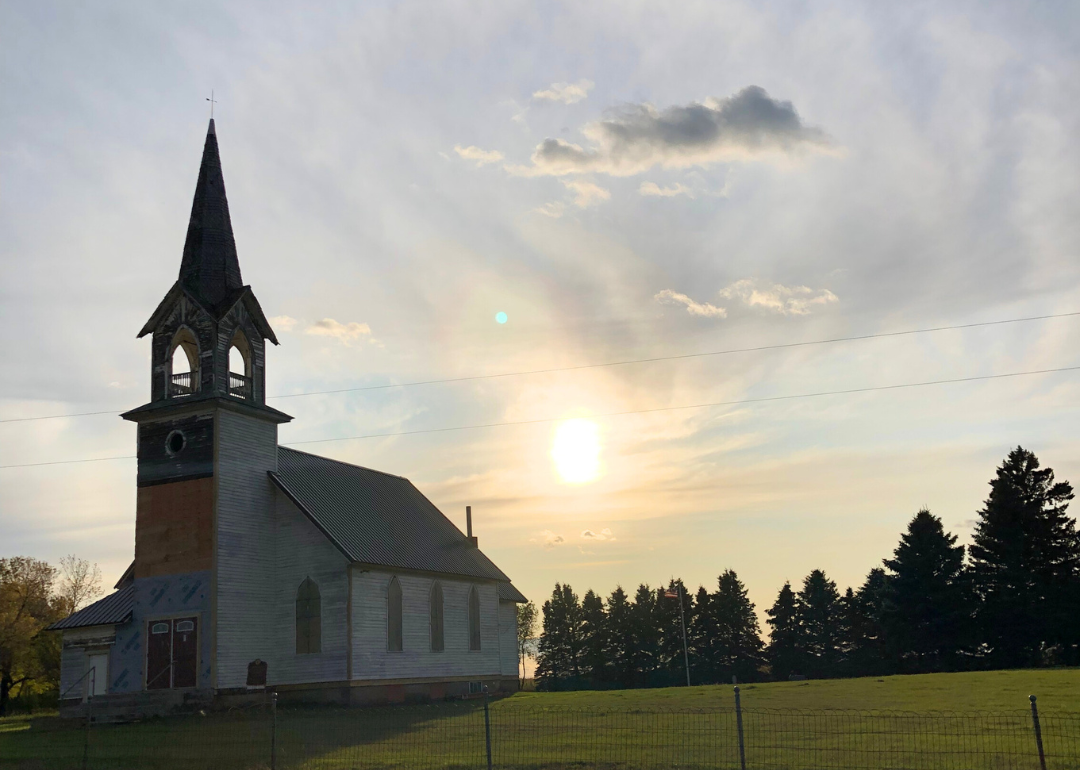
#32. Pierce County
- Percent susceptible area: 10.1%
- Total susceptible area: 105 square miles

#31. McIntosh County
- Percent susceptible area: 10.5%
- Total susceptible area: 102 square miles
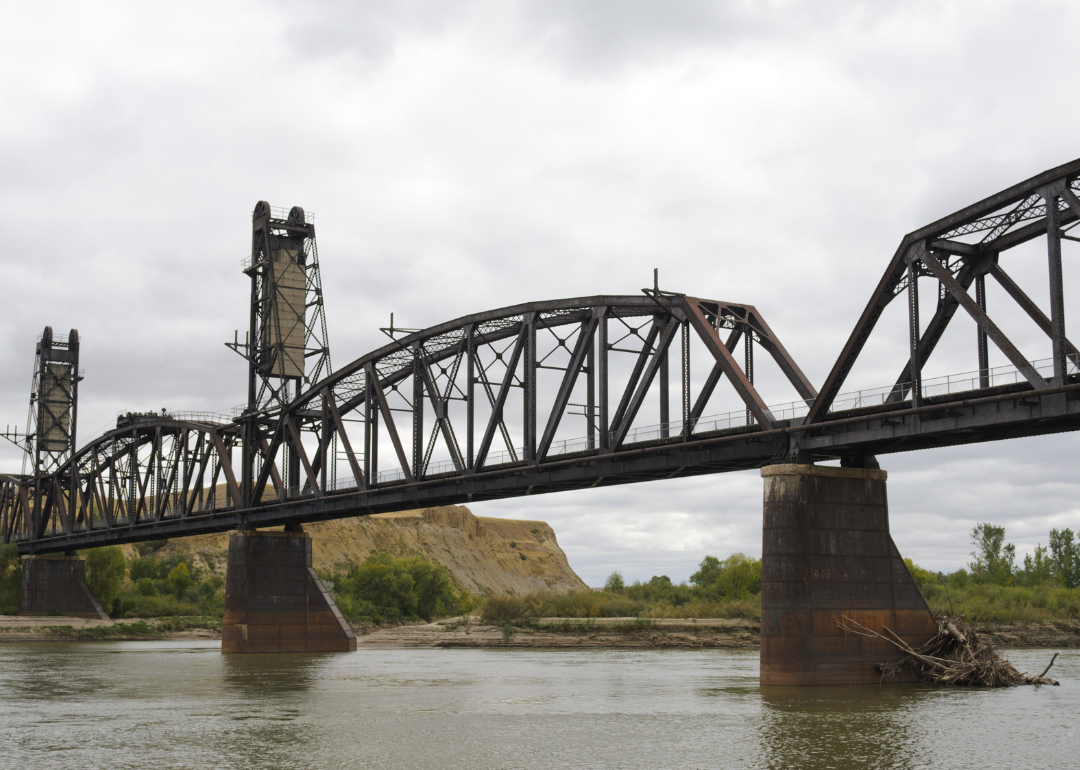
#30. Eddy County
- Percent susceptible area: 10.6%
- Total susceptible area: 68 square miles

#29. Griggs County
- Percent susceptible area: 11.7%
- Total susceptible area: 84 square miles
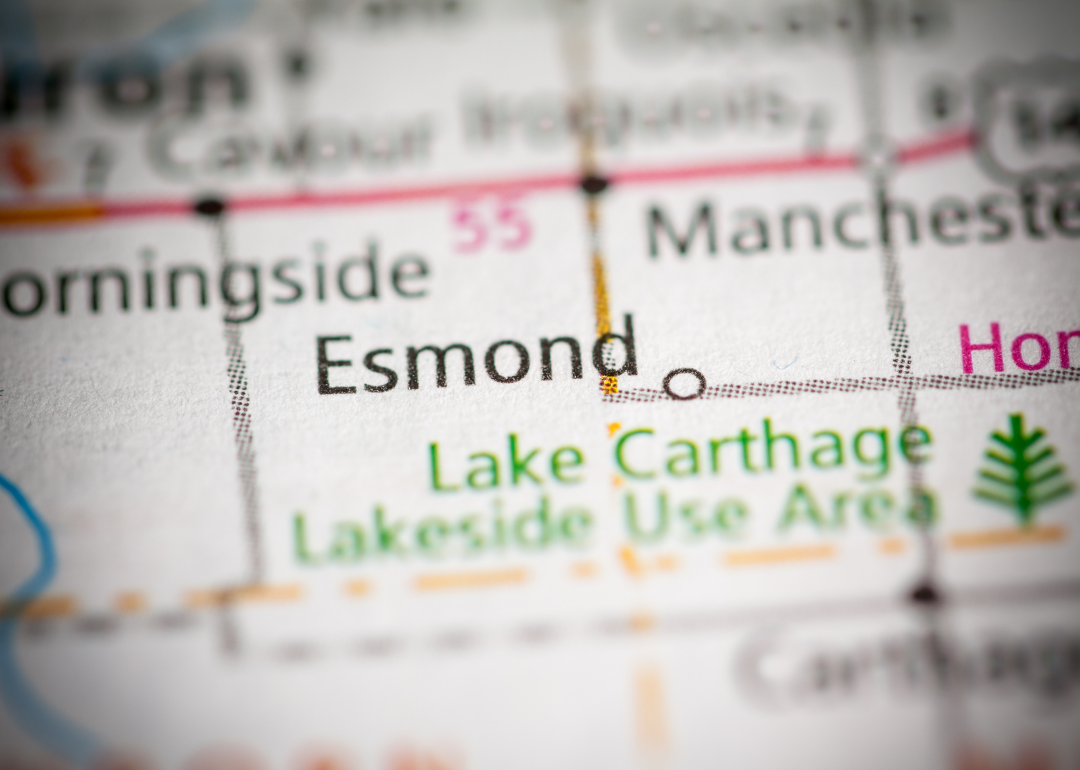
#28. Benson County
- Percent susceptible area: 12.6%
- Total susceptible area: 170 square miles
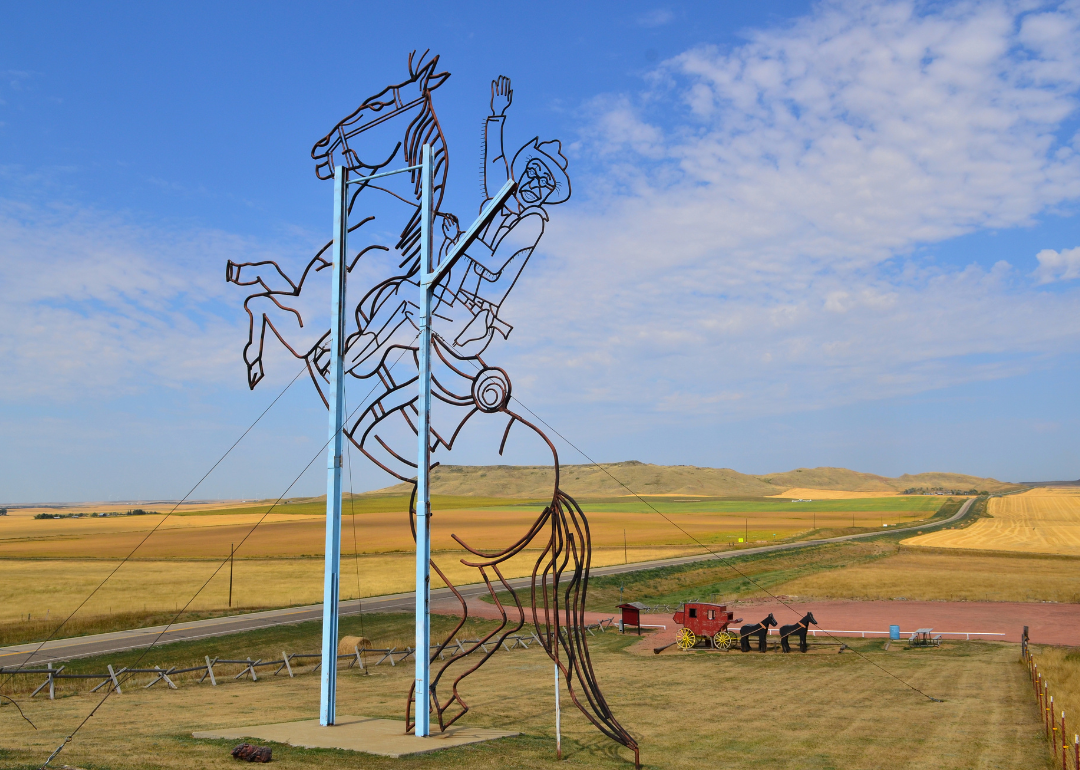
#27. Hettinger County
- Percent susceptible area: 13.1%
- Total susceptible area: 148 square miles
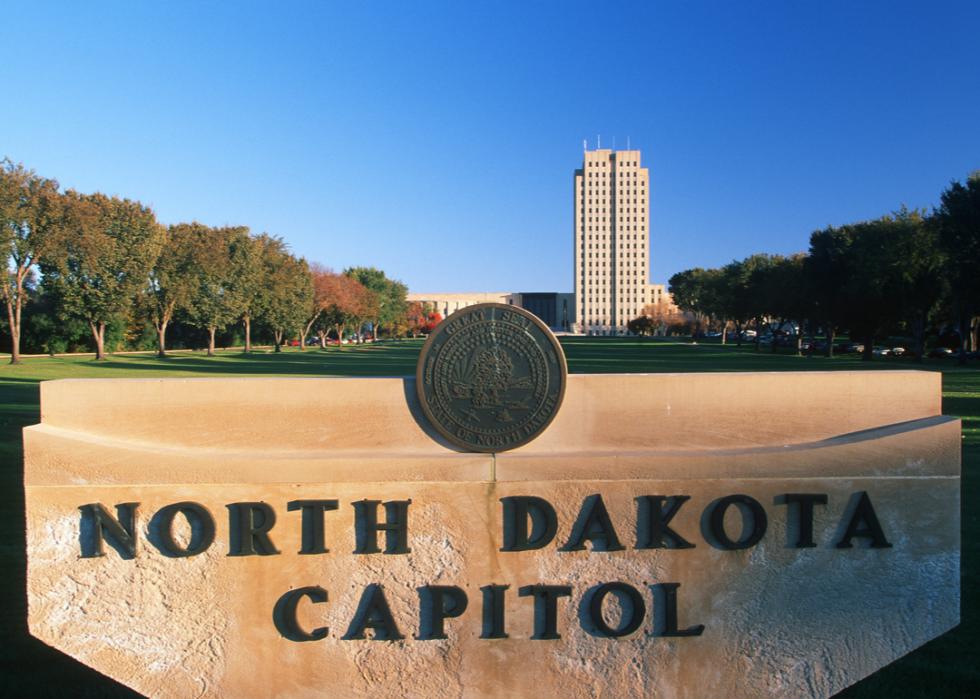
#26. Burleigh County
- Percent susceptible area: 13.9%
- Total susceptible area: 227 square miles
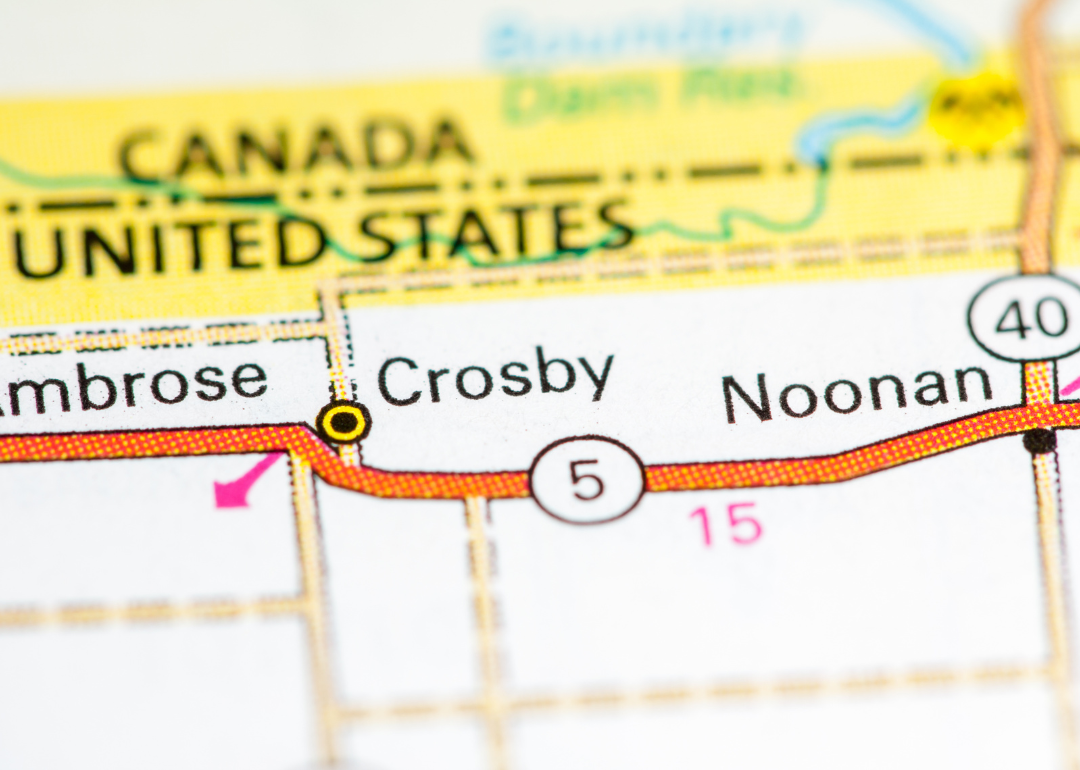
#25. Divide County
- Percent susceptible area: 14.4%
- Total susceptible area: 185 square miles

#24. Adams County
- Percent susceptible area: 14.8%
- Total susceptible area: 146 square miles
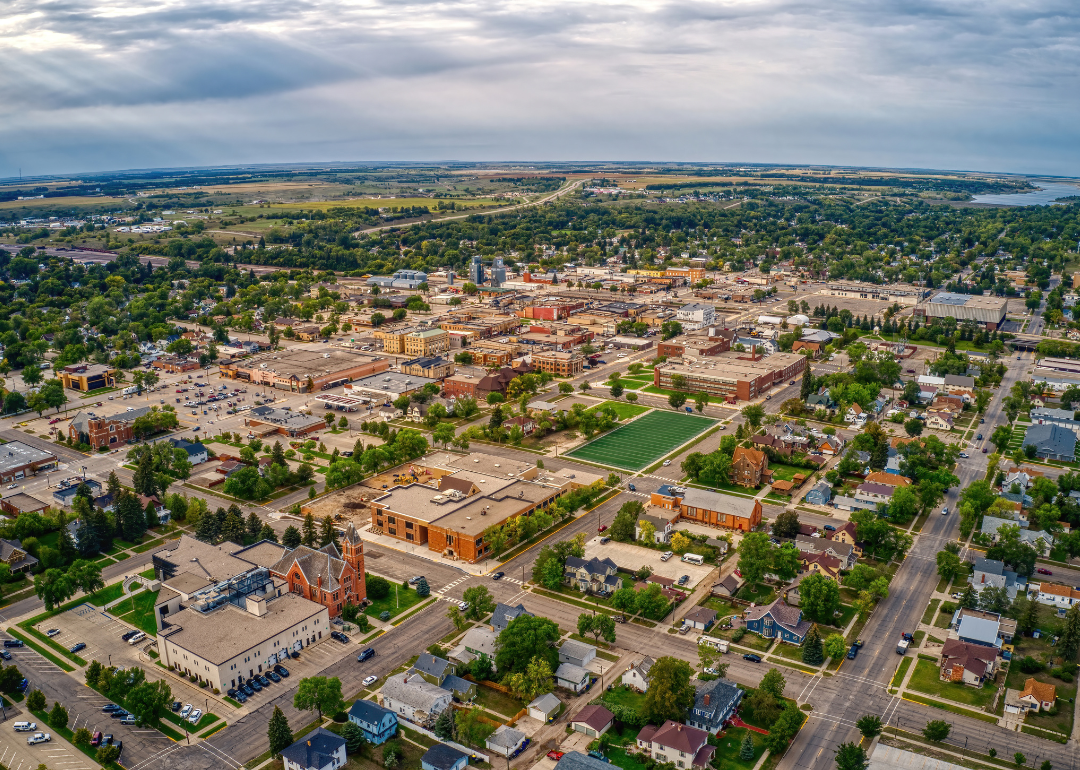
#23. Stutsman County
- Percent susceptible area: 15.2%
- Total susceptible area: 345 square miles
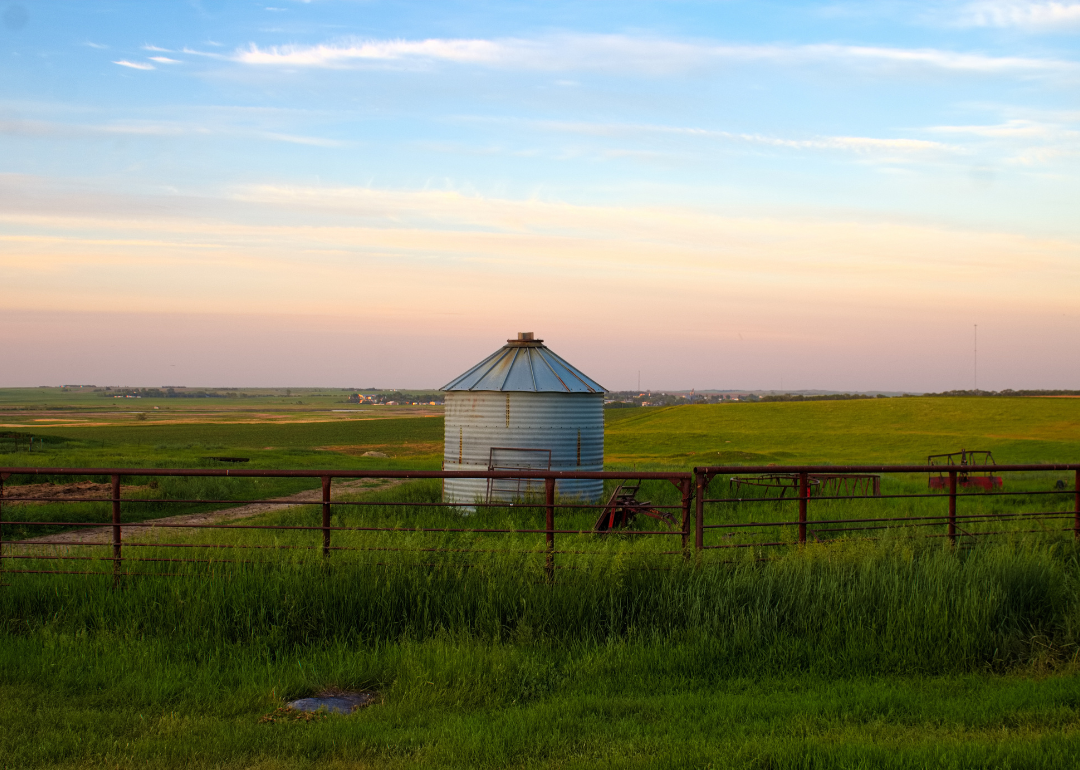
#22. Burke County
- Percent susceptible area: 15.5%
- Total susceptible area: 174 square miles

#21. Kidder County
- Percent susceptible area: 16.4%
- Total susceptible area: 224 square miles
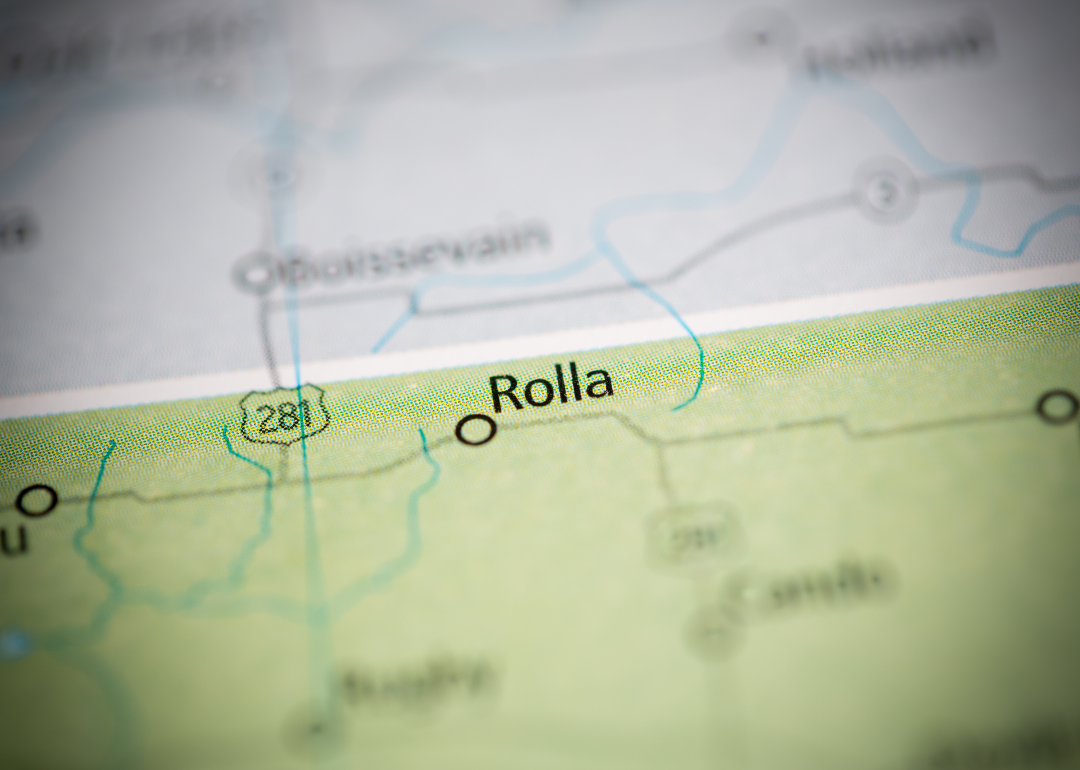
#20. Rolette County
- Percent susceptible area: 17.5%
- Total susceptible area: 162 square miles

#19. Logan County
- Percent susceptible area: 17.6%
- Total susceptible area: 175 square miles
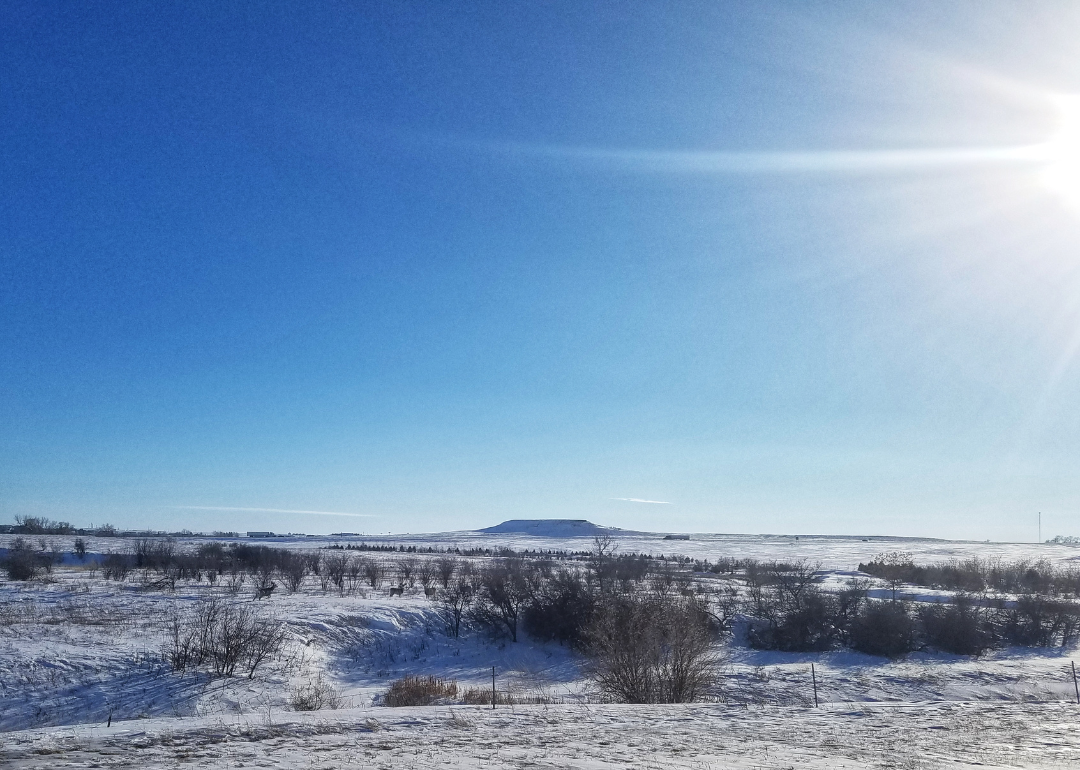
#18. McLean County
- Percent susceptible area: 19.9%
- Total susceptible area: 424 square miles
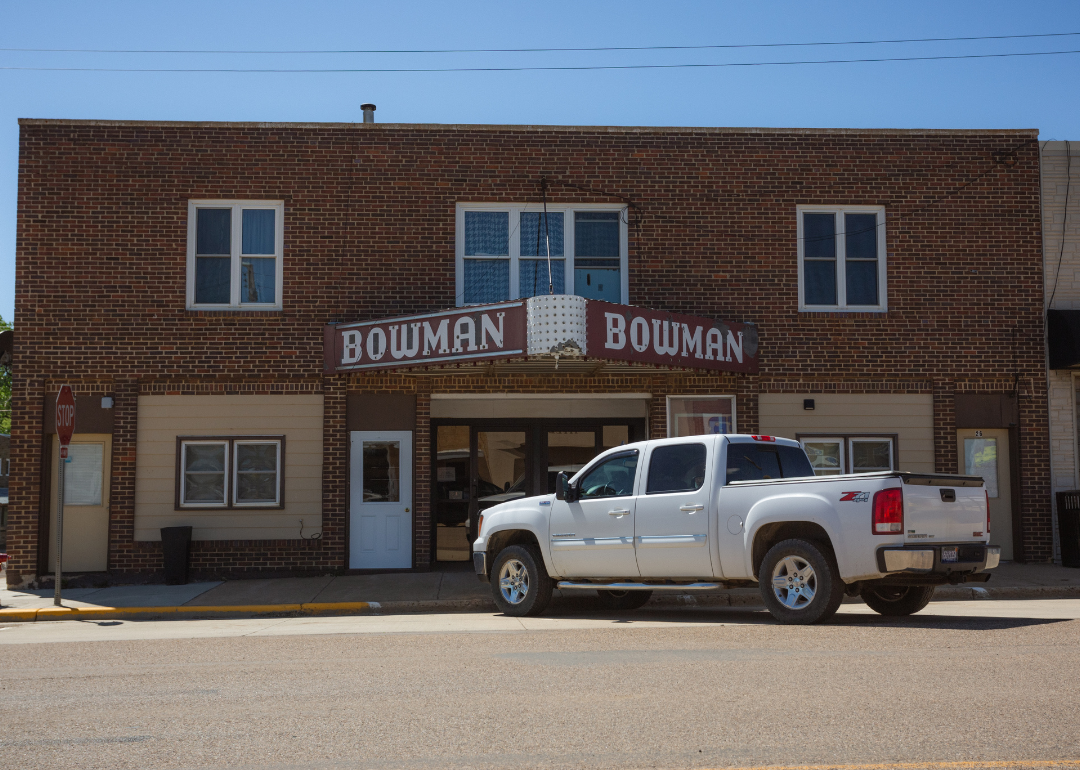
#17. Bowman County
- Percent susceptible area: 21.0%
- Total susceptible area: 244 square miles

#16. Ward County
- Percent susceptible area: 21.0%
- Total susceptible area: 430 square miles
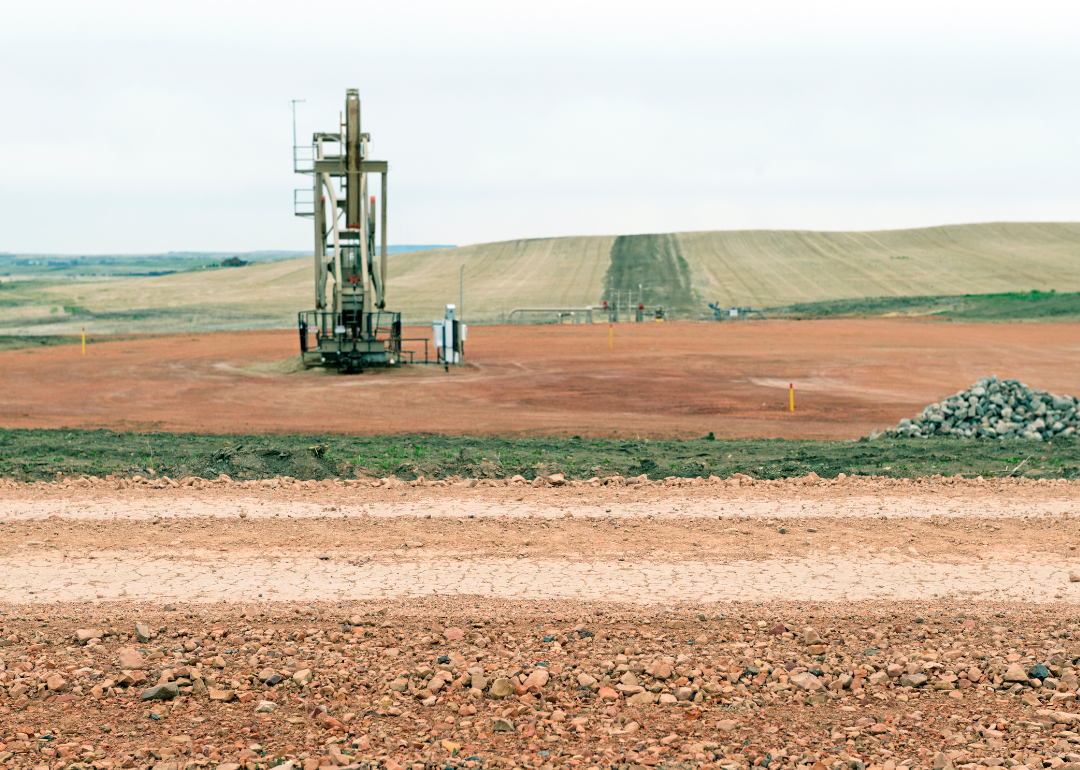
#15. Williams County
- Percent susceptible area: 21.6%
- Total susceptible area: 453 square miles
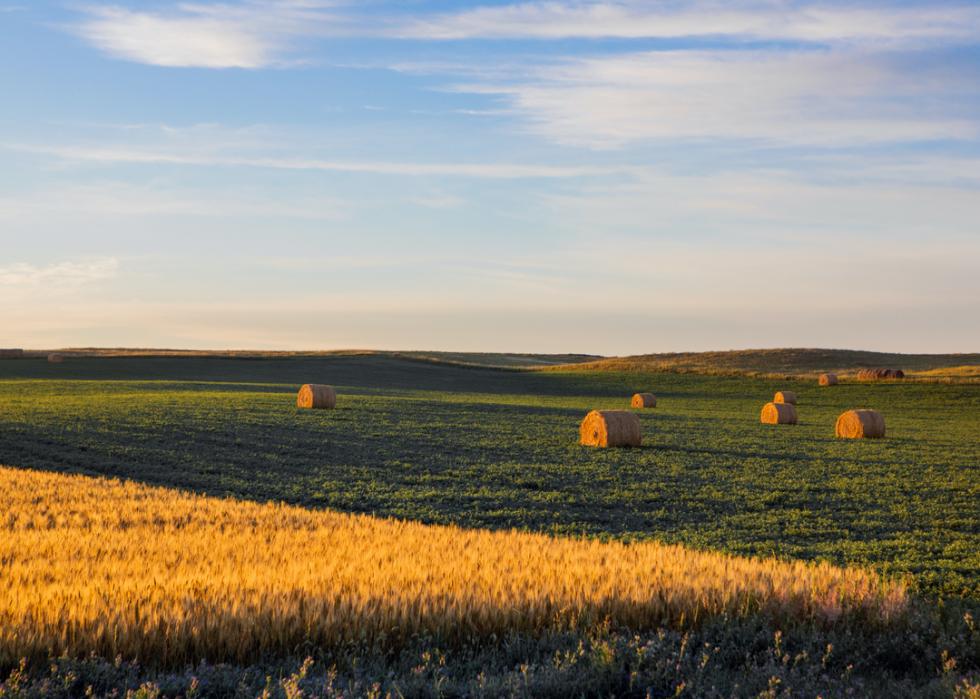
#14. Stark County
- Percent susceptible area: 21.7%
- Total susceptible area: 291 square miles
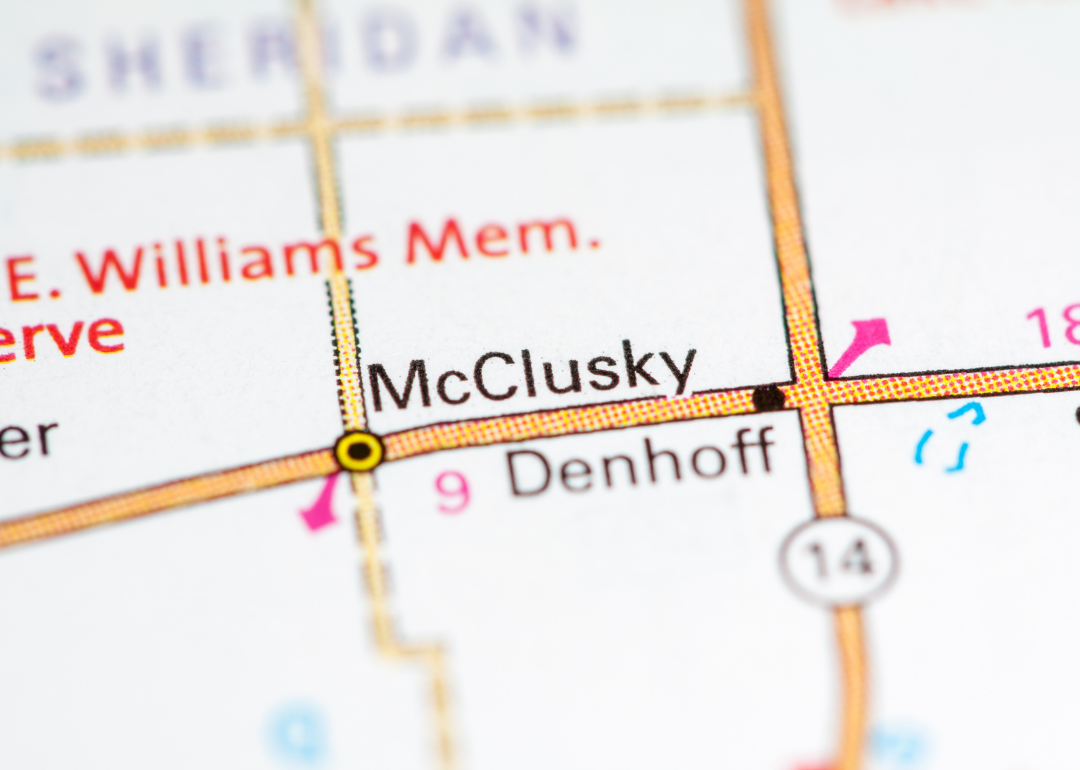
#13. Sheridan County
- Percent susceptible area: 22.1%
- Total susceptible area: 221 square miles
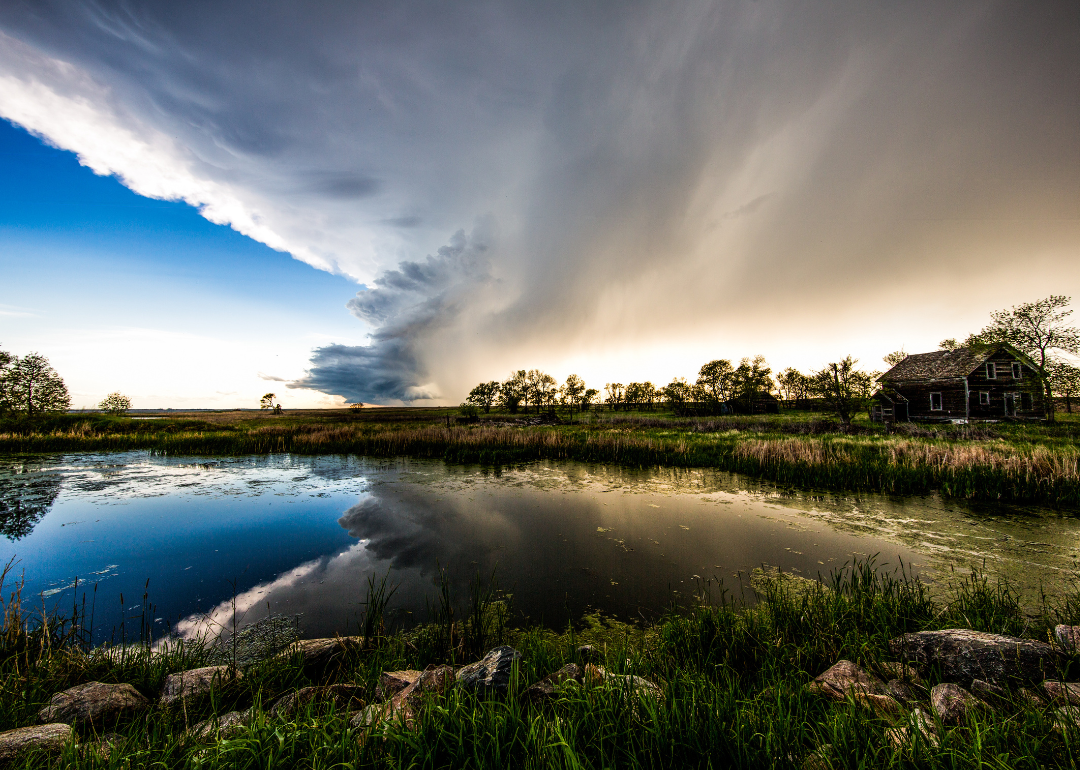
#12. Emmons County
- Percent susceptible area: 23.0%
- Total susceptible area: 345 square miles
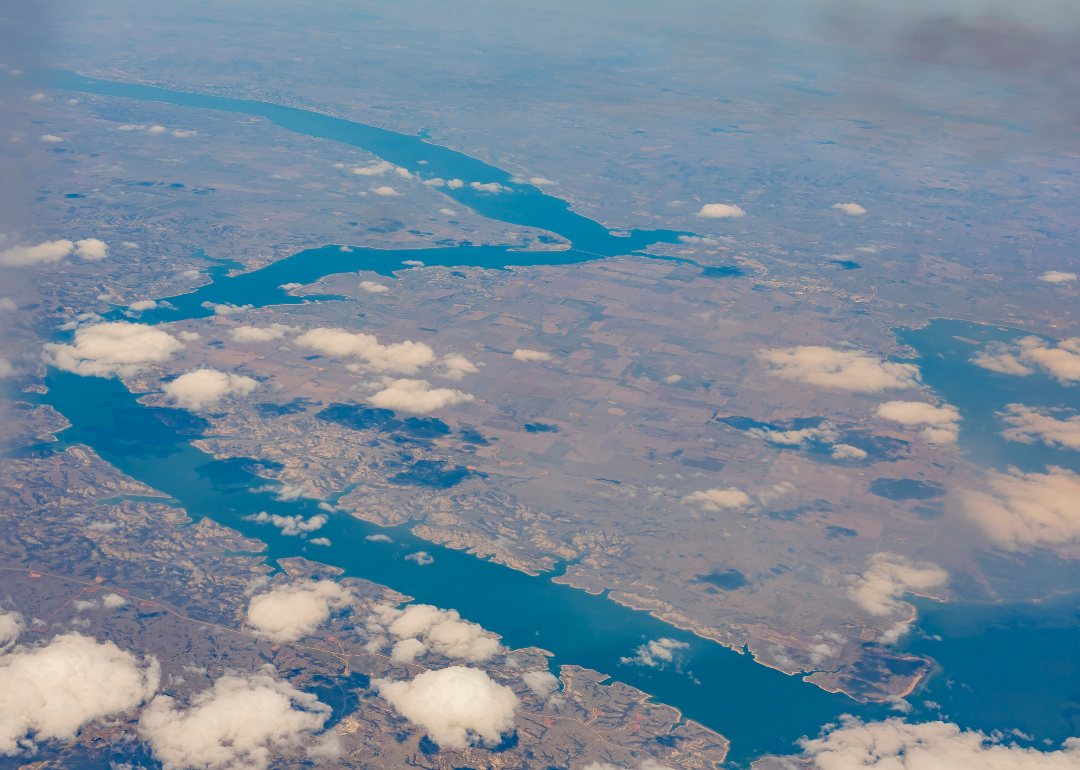
#11. Mountrail County
- Percent susceptible area: 28.4%
- Total susceptible area: 525 square miles
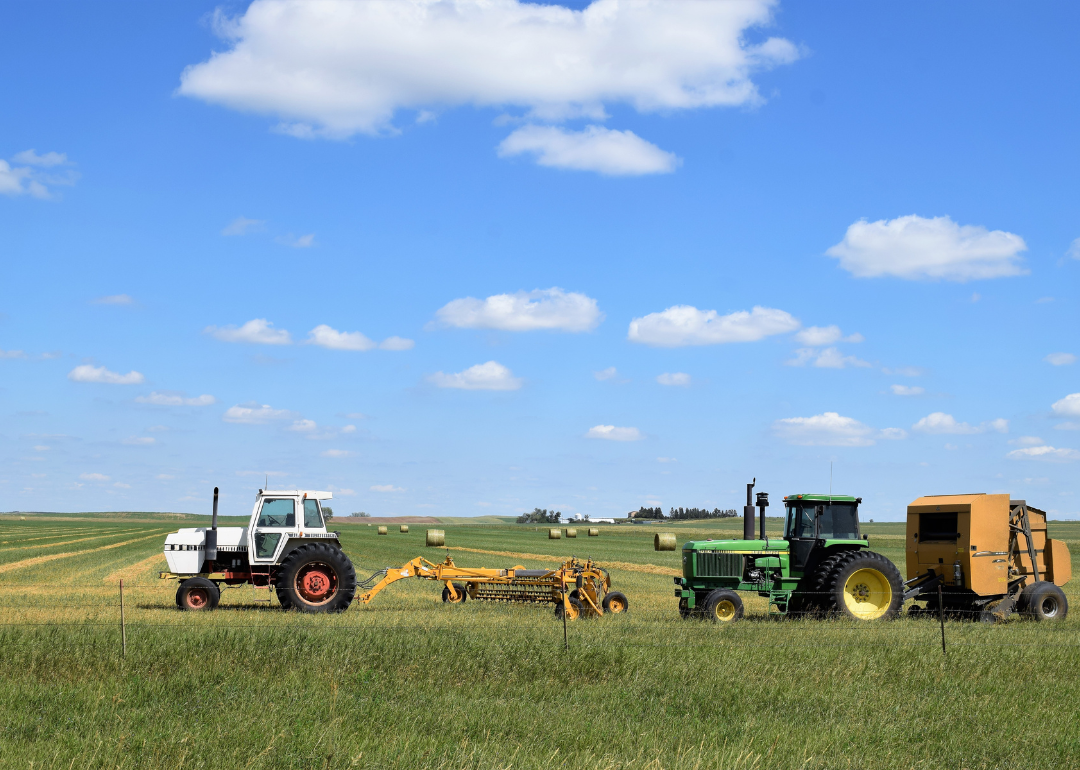
#10. Grant County
- Percent susceptible area: 29.9%
- Total susceptible area: 496 square miles

#9. Oliver County
- Percent susceptible area: 30.7%
- Total susceptible area: 222 square miles
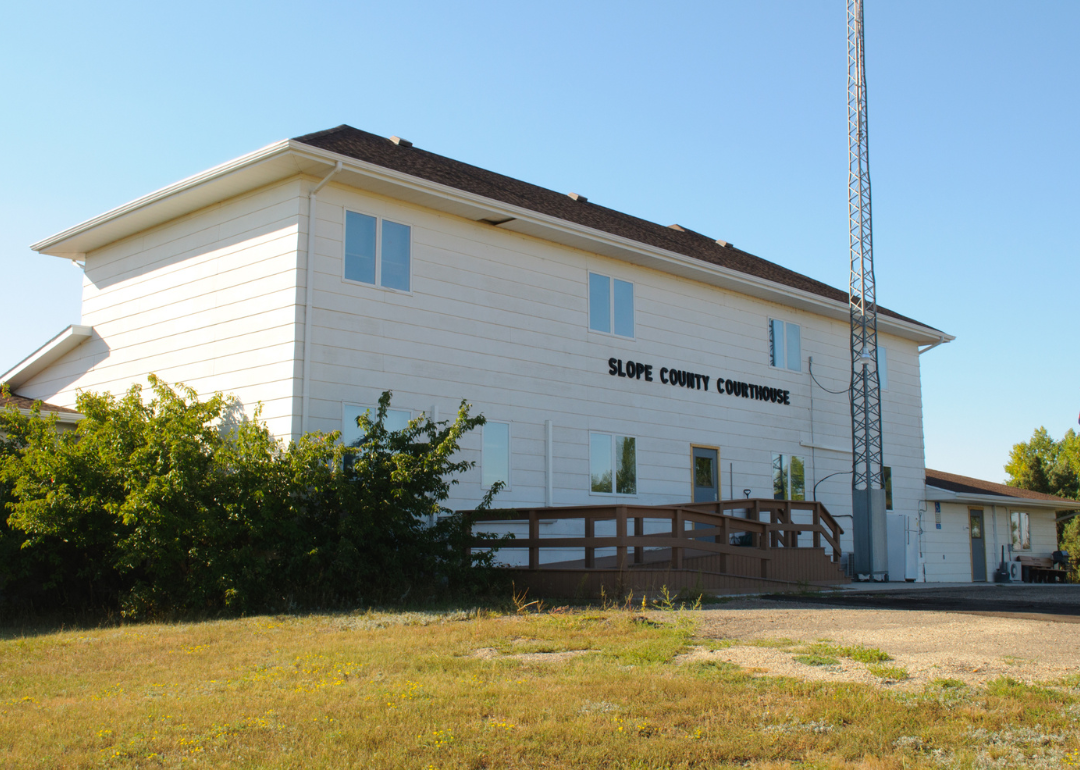
#8. Slope County
- Percent susceptible area: 34.5%
- Total susceptible area: 420 square miles
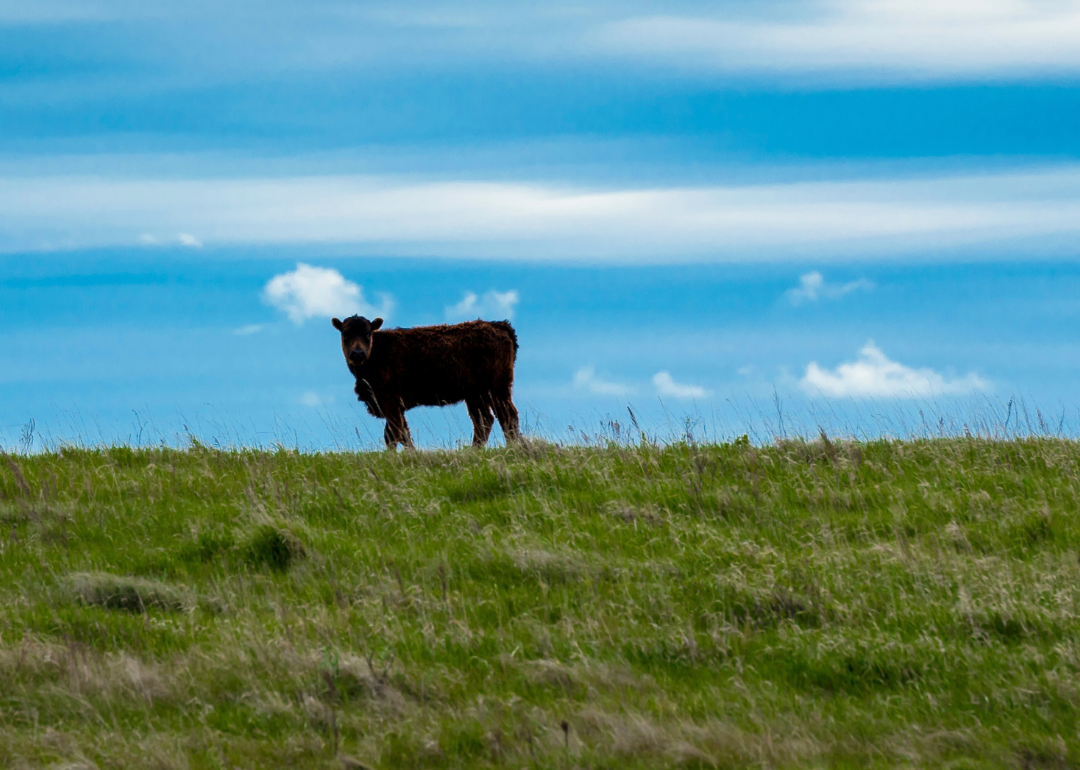
#7. Sioux County
- Percent susceptible area: 35.1%
- Total susceptible area: 385 square miles
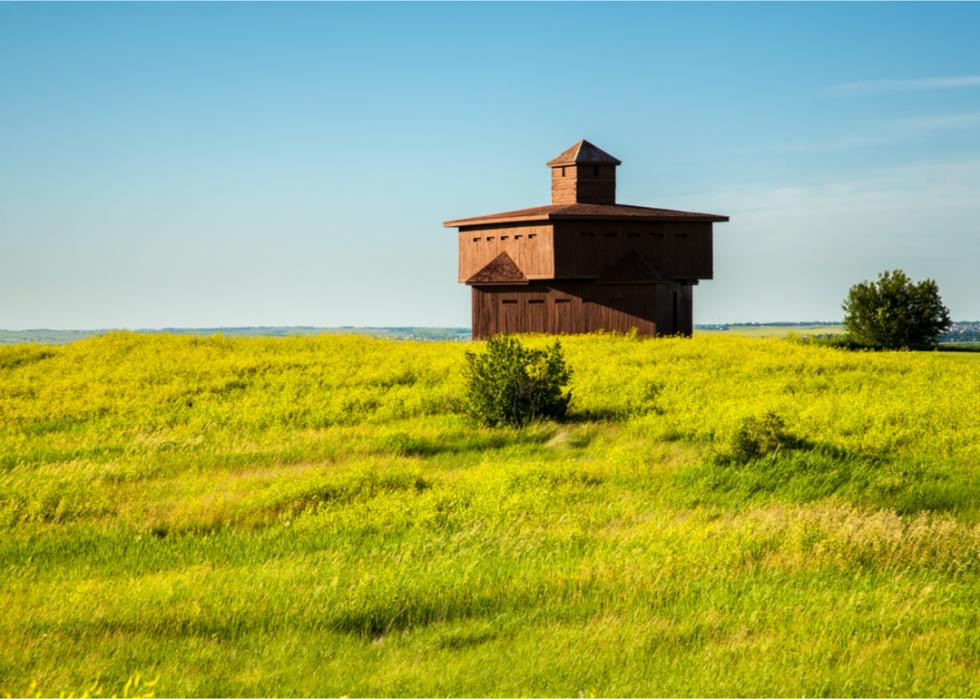
#6. Morton County
- Percent susceptible area: 35.6%
- Total susceptible area: 686 square miles
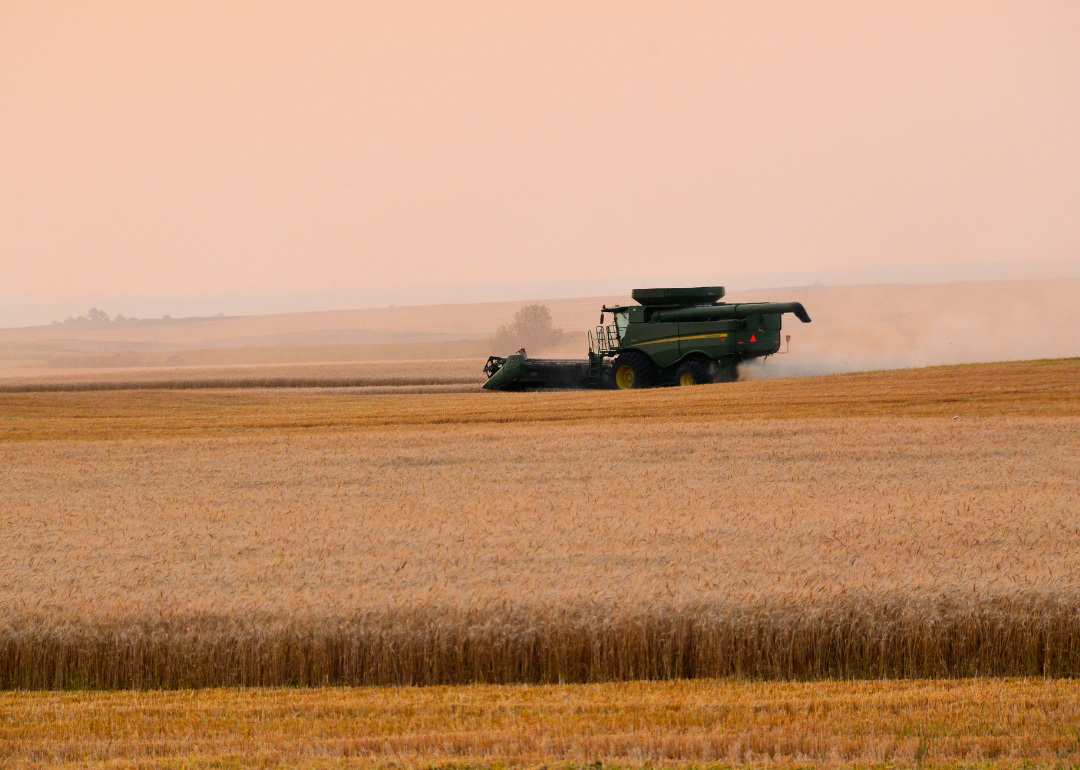
#5. Mercer County
- Percent susceptible area: 36.1%
- Total susceptible area: 379 square miles
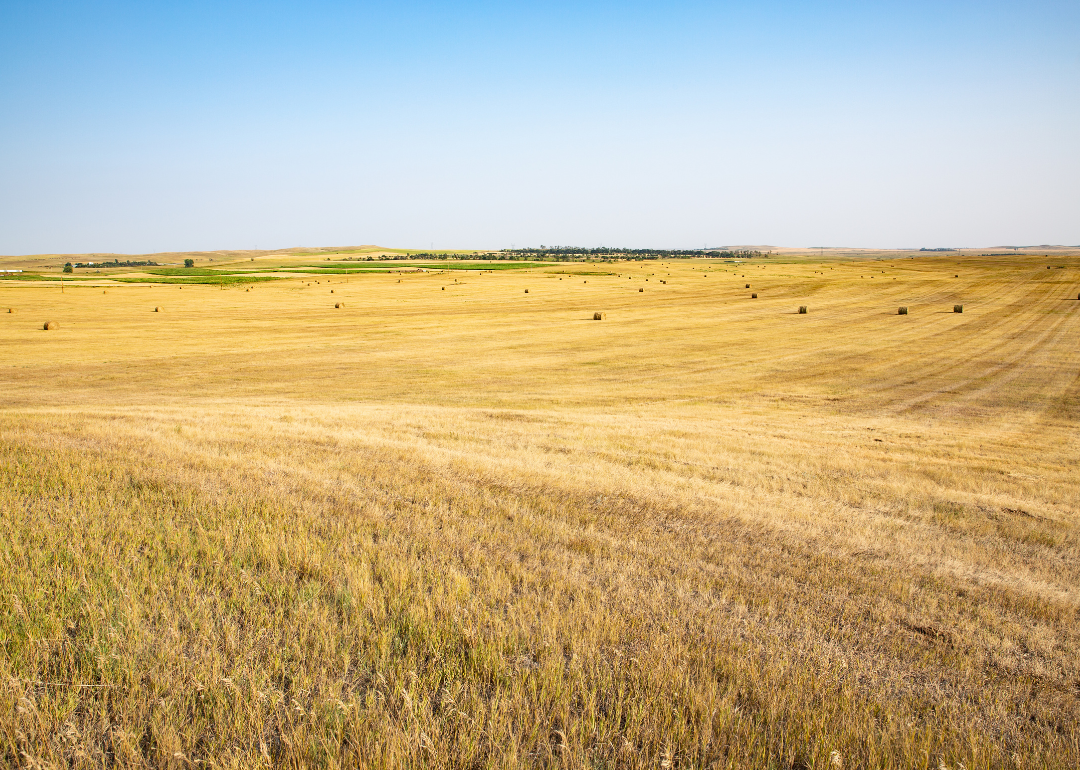
#4. Dunn County
- Percent susceptible area: 44.4%
- Total susceptible area: 898 square miles
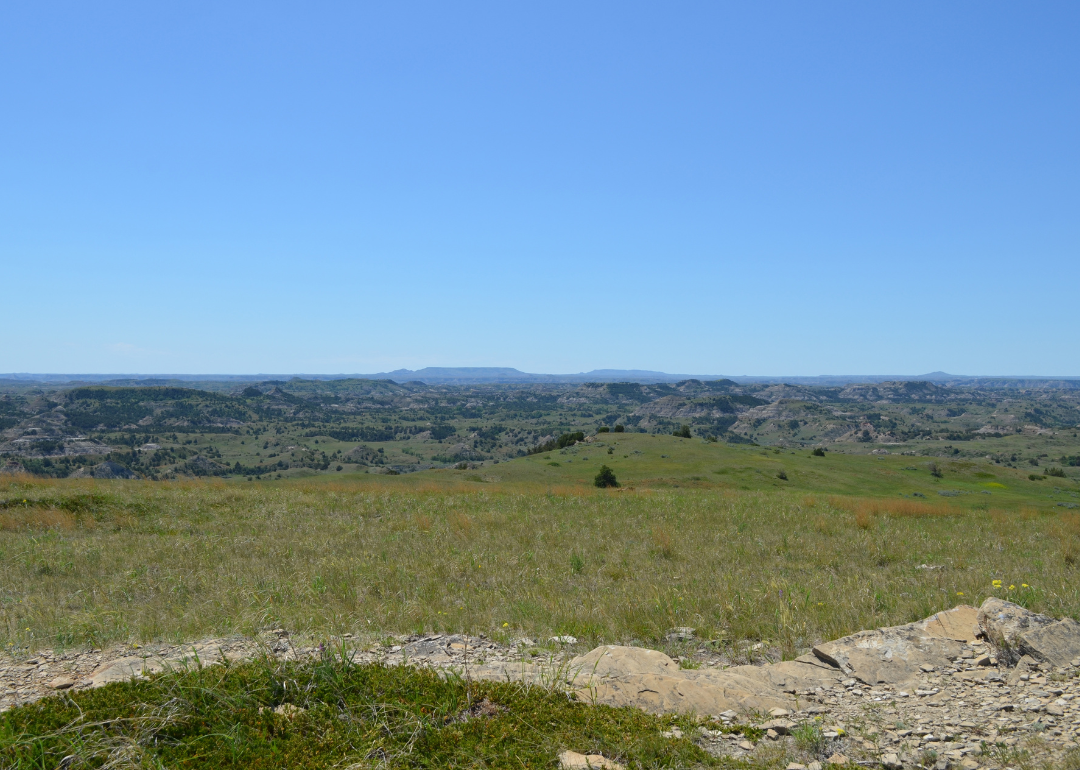
#3. Golden Valley County
- Percent susceptible area: 48.5%
- Total susceptible area: 486 square miles
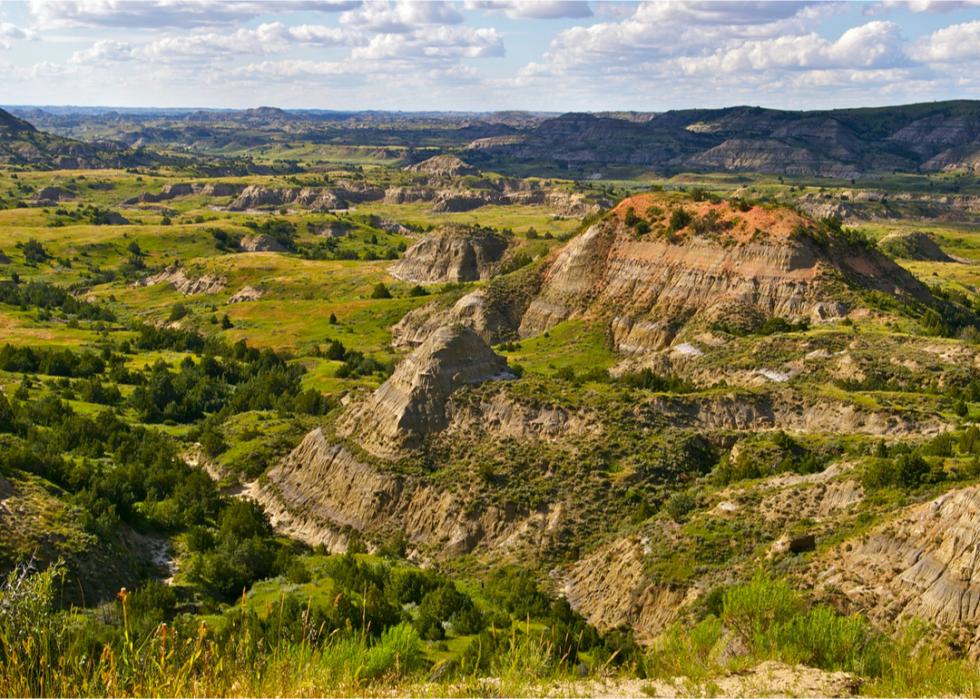
#2. Billings County
- Percent susceptible area: 60.0%
- Total susceptible area: 692 square miles

#1. McKenzie County
- Percent susceptible area: 61.2%
- Total susceptible area: 1,704 square miles
This story features data reporting and writing by Paxtyn Merten and is part of a series utilizing data automation across 50 states.



